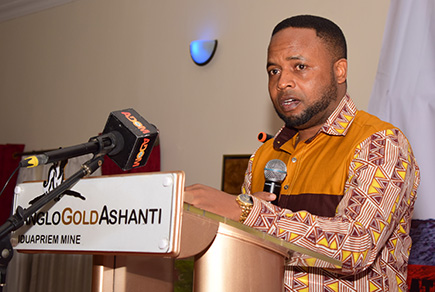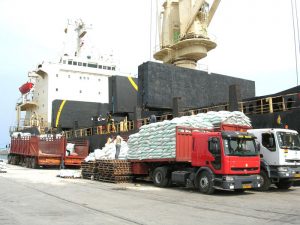AngloGold Ashanti (Iduapriem) Limited has reached an agreement with relevant stakeholders in host communities for a 13 per cent upward adjustment in compensation rate for farmers whose crops may be affected by its operations in 2019.
At a crop compensation review meeting, organised by the Mine, all parties expressed satisfaction with the new rate and pledged to do their part to ensure compliance so that the goodwill and mutually beneficial relationship existing between stakeholders and the Mine would be sustained.
Mr Stephen Adjei, the Manager, Land Access and Social Investment for Iduapriem Mine, assured stakeholders of the Mine’s commitment to paying fair compensation to farmers who may be impacted by its activities and called for full cooperation.
He said the Mine would not relent in efforts towards creating a sustainable future of shared value for the benefit of all stakeholders.
The Chief of Esuaso, the Nana Kwasi Atobrah II, who was elected chairman of the Committee and facilitated the negotiation process, expressed gratitude to all parties for demonstrating good faith in reaching agreement on the new rate.
He charged all parties to abide by the terms of agreement to maintain the peace and harmony between the Mine and the farmers.
Nana Atobrah, who is also the current Best Farmer for Tarkwa Nsuaem, commended the Mine for the effective collaboration with the farmers, especially in making them have a say in the setting of crop rate.
He called on farmers to make good use of the opportunity offered to improve on their livelihoods.
This exercise is undertaken annually as part of implementing the company’s Land Access Standard Operating Procedure, in line with the Compensation and Resettlement Regulation 2012 (LI 2175).
The members of the committee were drawn from Tarkwa Nsuaem and Prestea – Huni Valley Municipal Assemblies, Land Valuation Division, Ministry of Food and Agriculture, CHRAJ Municipal Office, Apinto and Esuaso Traditional Councils, Stool Land Secretariat, and host community chiefs, assemblymen, farmers, women’s groups, among other stakeholders.
Source: GNA






